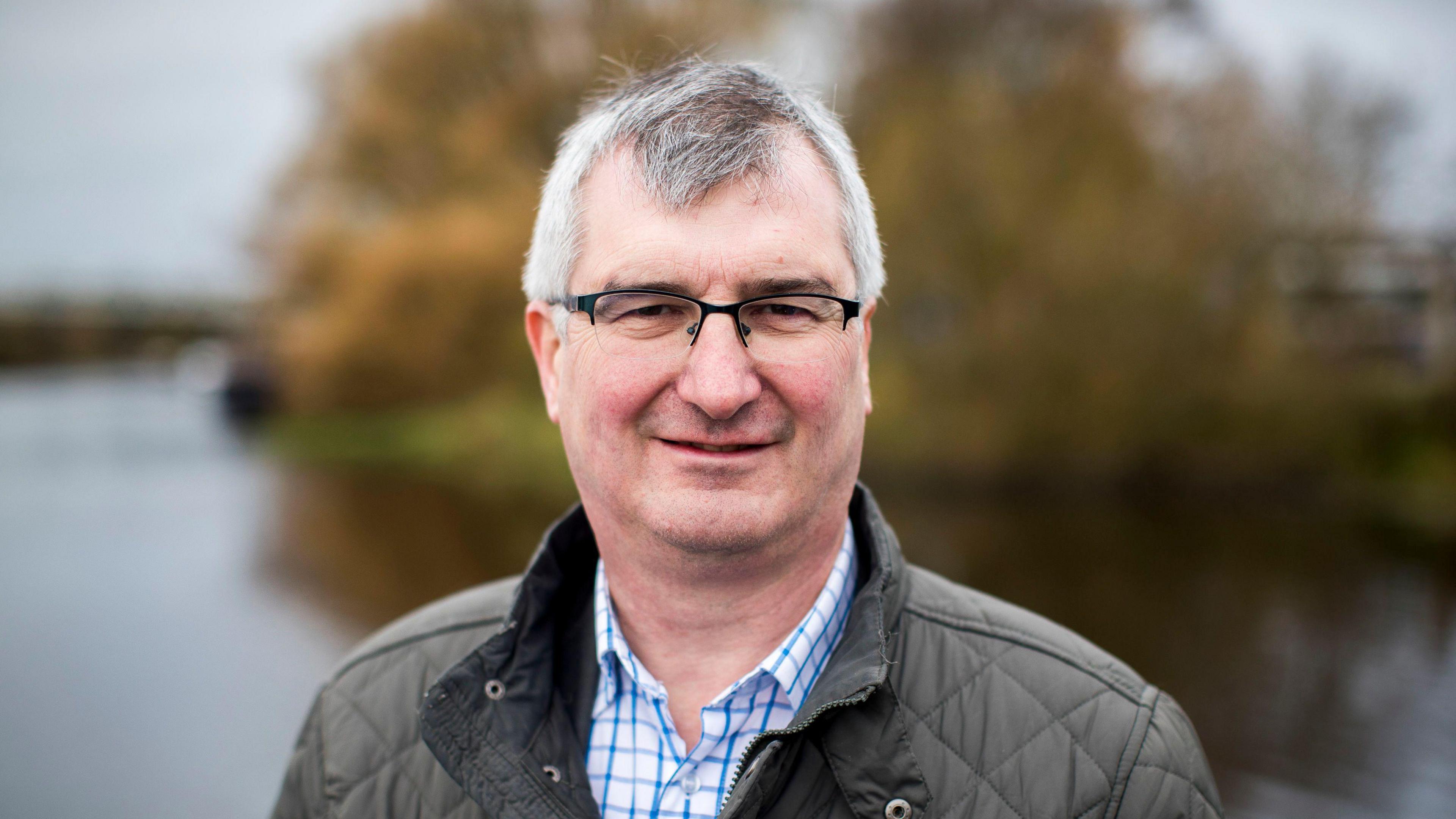UUP's Tom Elliott appointed to House of Lords

Tom Elliott was first elected as an MLA in Fermanagh and South Tyrone in 2003
- Published
Former Ulster Unionist Party (UUP) leader Tom Elliott has been given a peerage in the dissolution honours list.
A party spokesperson said a decision has not been made on whether Mr Elliott will remain as MLA for Fermanagh and South Tyrone.
He was one of 19 new peers announced by the government.
The full list was published shortly before polls closed in the general election on Thursday.
Other appointees include former UK Prime Minister Theresa May, Chairman of the 1922 Committee Sir Graham Brady, Labour MP Harriet Harman, and former President of the National Farmers’ Union of England and Wales Minette Batters.
A dissolution honour takes place at the end of a term of Parliament.
New life members of the House of Lords – known as life peers – are appointed by the King on the advice of the prime minister.
Life peerages are not inherited and cannot be passed down through family.
What is the House of Lords and how does it work?
- Published5 September 2024
Mr Elliott said he feels "extremely humbled and privileged" to be appointed.
“I feel this is recognition to the people of Fermanagh & South Tyrone and Northern Ireland," he said.
UUP leader Doug Beattie said Mr Elliott will make an "excellent addition" to the House of Lords.
The UUP have two other peers in the House of Lords, Lord Empey and Baron Rogan.
Who is Tom Elliott?
Mr Elliott was re-elected to the Northern Ireland Assembly in 2022, having previously served between 2003 and 2015.
He was MP for the Fermanagh and South Tyrone constituency between 2015-2017, and UUP party leader from 2010-2012.
Mr Elliott is currently Deputy Chief Whip, the party spokesman for Agriculture and Environment and chairs the Agriculture, Environment and Rural Affairs Committee at Stormont.
He was a soldier in the Ulster Defence Regiment (UDR) from 1982-1992 and its successor, the Royal Irish Regiment, from 1992-1999.
What is a life peer?
The House of Lords is independent from the House of Commons - where Members of Parliament debate and vote on new laws.
Members of the Lords, known as "peers", scrutinise the work of government and recommend changes to proposed legislation.
Unlike MPs, however, peers are not elected.
The majority are life peers, meaning they are appointed by the monarch on the advice of the prime minister to serve for their life.
While many peers have worked in politics - including some former MPs - others are experts in areas such as science or the arts.
Most peers stay in the lords for life - although some choose to retire.